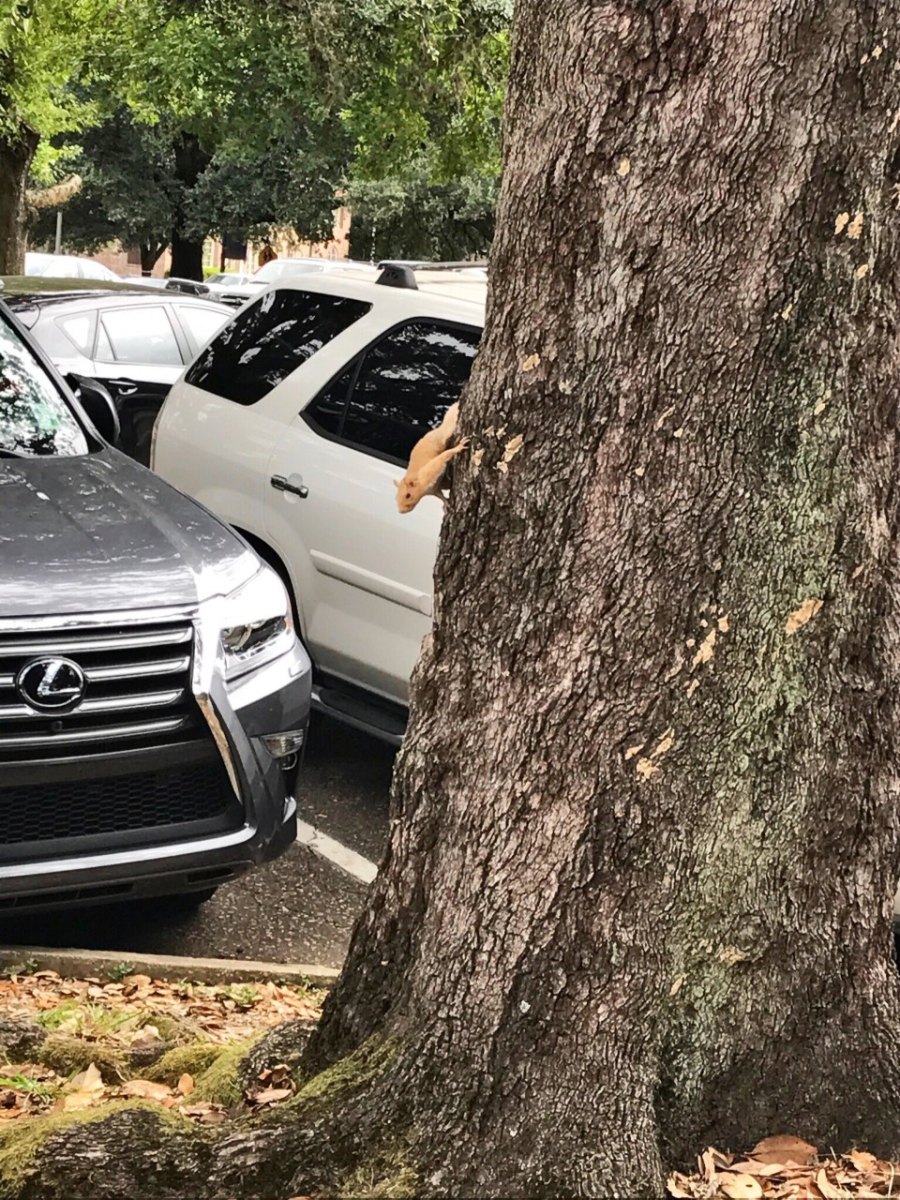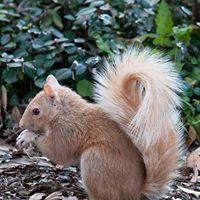Walking around campus, it’s hard to miss the squirrels that call LSU their home. But only a few students spotted the “albino” squirrel rumored to reside on campus.
“I must have seen the squirrel a few weeks ago near Middleton,” sports administration freshman Zach Jenkins said. “It was a lot lighter than any other squirrel I’ve seen around here.”
The lack of students who have seen the squirrel in recent years made the albino squirrel a myth to some.
“Nobody else I told about it had seen it before,” Jenkins said.
According to Jonathan Nations, an undergraduate student employed at the LSU Museum of Natural Science, the squirrel being described is actually considered to be Isabelline colored, not albino.
A squirrel that has albinism wouldn’t produce melanin anywhere on its body or eyes, rendering it completely pale white, Nations said. The “albino” squirrel some students see around campus has a lighter fur coloring than other squirrels, but has the same eye color as a regular squirrel, causing Nations to deduce that it is not an albino squirrel.
“This coloration is not a partially albinistic variant, rather it is a type of pigment dilution whereby there is substantial but not complete reduction in melanin caused by genetic mutation,” Nations said. “Isabelline dilution is marked by a uniform reduction in melanin. The result of this genetic mutation is an individual that looks ‘washed out’,” according to a 2012 study done by researchers on Isabelline coloration in squirrels.
The incorrect identification of the squirrel has occurred on campus since 2012 when a Facebook group, “The Albino Squirrel At LSU,” was created and featured a picture of a squirrel that looks similar to the Isabelline squirrel seen around campus recently.
The most common species of squirrel on campus, the eastern gray squirrel, usually has a lifespan of 15-20 years. However, a squirrel with a lighter pigment could have a shorter lifespan than average, according to Nations.
Another species of squirrel that is common in Louisiana is a fox squirrel, which Nations believes is the species of squirrel that the Isabelline squirrel seen around campus is.
One problem the Isabelline squirrel could face on campus is increased risk of predators due to its more visible fur tone.
“It would probably, for a full albino squirrel, be more susceptible to predators, like owls and things like that, just because they are so visible,” Nations said.
There may still be an albino squirrel that has eluded the attention of students and staff on campus, but it seemingly has been an Isabelline squirrel that has been reported so far.
The legend lives on: LSU’s ‘albino squirrel’ still spotted around campus
By Nick Frewin
October 26, 2019
The “albino” squirrel climbs a tree on LSU’s campus in September 2019.






